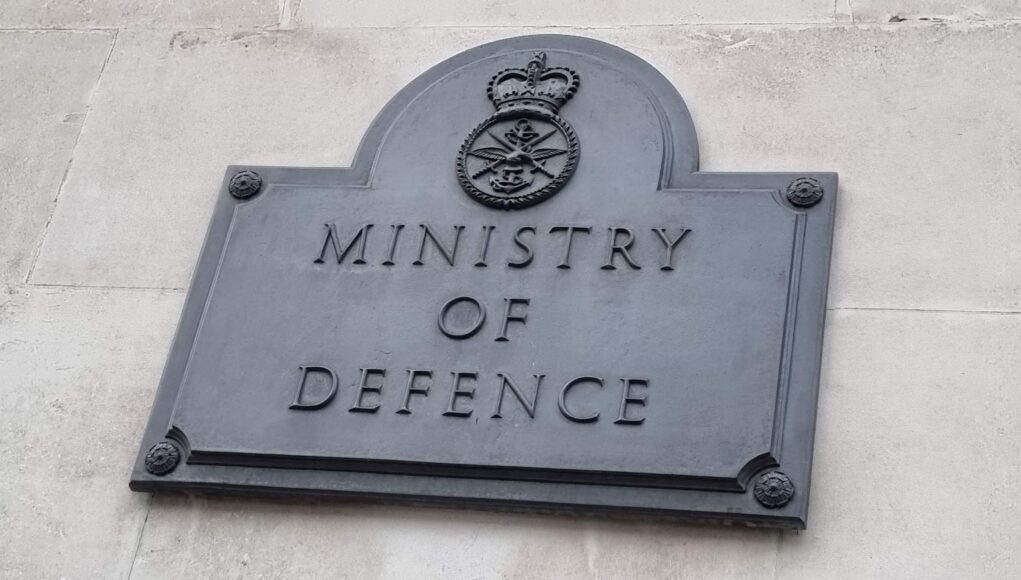Leaders at Defence sites will have the power to restrict the Armed Forces Commissioner’s access on national security or safety grounds, according to Defence Minister Lord Coaker.
A letter, placed in the House of Lords Library, sets out how powers contained in the Armed Forces Commissioner Bill will work in practice. While formal authority lies with the Secretary of State for Defence, site commanders — known as Heads of Establishment — will be able to intervene directly when necessary.
Lord Coaker wrote that “the Armed Forces Commissioner Bill gives the Commissioner the necessary powers and access to certain Defence sites to enable them to carry out their investigations into matters of general service welfare for those who come under service law and their families.” However, he stressed that “in extraordinary circumstances” the Head of Establishment could “prevent the Armed Forces Commissioner from entering their site on National Security or safety grounds.”
Normally, the Commissioner must give notice before visiting a site — unless it is deemed that doing so would “defeat the object of exercising the power,” such as when destruction of evidence is a concern. In all cases, the Secretary of State retains the final decision-making authority but can issue standing guidance to commanders.
“We therefore anticipate that in practice, the Secretary of State could provide the Commissioner and Heads of Establishment with information in advance regarding specific sites (or parts of sites), activities, or broader criteria to which they will be preventing or restricting access,” Lord Coaker explained.
He added that in developing this system, the Secretary of State would consult not only Defence officials but also the Foreign Secretary and Home Secretary “to ensure all matters which infringe upon national security interests are assessed.”
Importantly, the mechanism will allow Heads of Establishment to act even if no specific site restrictions are in place. Lord Coaker outlined an example: “Should the Commissioner wish to visit without notice, the Head of Establishment will still be able to prevent the Commissioner from entering, either all or part, of the site.”
Although the legal authority technically resides with the Secretary of State, Heads of Establishment will have a clear mandate to carry out site-specific checks: “Heads of Establishment and relevant security staff will therefore have the authority to conduct their own, fact-specific due diligence in line with these concerns, including delaying access while enquiries are made.”
If disagreements arise over access rights, either side can escalate the matter to the Office of the Secretary of State. Lord Coaker confirmed that “officials in the implementation team within MOD are working with partners across government to refine the practicalities of this mechanism and will ensure there is robust engagement and communication to make Heads of Establishments aware of their remit and responsibilities with regards to the Commissioner.”
The letter concluded with Lord Coaker expressing anticipation for further scrutiny of the Armed Forces Commissioner Bill at Report Stage in the House of Lords, scheduled for 30 April 2025: “I very much look forward to your examination of the bill at Report Stage.”
The Armed Forces Commissioner Bill is a key part of the government’s wider efforts to enhance the welfare and oversight of personnel subject to service law, while balancing operational and national security needs.














And if a “Head of Establishment” refuses entry to the Armed Forces Commissioner by falsely citing “National Security” or “Safety”, what are the consequences for him/her ?
Google pay 92 every hour my last check was 8400 working 10 hours per week on the web. My more youthful sibling companion has been averaging 18k throughout recent months and he works around 24 hours per week. I cannot accept how simple it was once I attempted it out.This is my main thing……….,.,.,.. WORKSTAR1.COM
*Importantly, the mechanism will allow Heads of Establishment to act even if no specific site restrictions are in place. Lord Coaker outlined an example: “Should the Commissioner wish to visit without notice, the Head of Establishment will still be able to prevent the Commissioner from entering, either all or part, of the site.”*
A complete waste of time then.
Let’s hope we don’t get to the situation across the pond where ‘national Security’ is being exploited by the regime to pretty much refuse any request even by the Supreme Court.
Presidential pardons all round when found guilty. No respect for law, truth or decency.
So this is basically a waste of time.
Back to days when plod couldn’t access bases to investigate deaths.
Essentially it is telling us that the Commissioners won’t be DV cleared so they will be chocolate fire guard useful.
Another nail in the coffin of free speech under Labour.
Blocking access.
To all the site, or parts of it?
There are admin areas that should be open house to an inspector, and operational SCI type areas, be they rooms or entire buildings, that quite rightly are not accessable, without the required clearance.
I understand there are classifications beyond even DV?
The solution is simply appoint people with high security clearance to the inspectorate role.
Essentially someone who is meant to have oversight but cannot get access as a when they need to is essentially useless. Unless the individual has close to plenipotentiary powers in regards to when and how they access, who the talk to and what records and information they can access, you are simply employing a very expensive rare individual to tick a box in a job they will be prevented from doing, which mean they will end up leaving… I should know, I had oversight and responsibility for a large number of providers of healthcare, but zero rights of access and it was an impossible job to do in the end I had to fall on my sword and say not in my name.
This is not good. What safety problems could there be for the Commissioner to enter a site and interview people in an office? Surely there is no need to enter a physically hazardous area?
Similarly with security – why would the Commissioner need to see classified equipment or to read classified documents that are above his/her vetting status.
hello